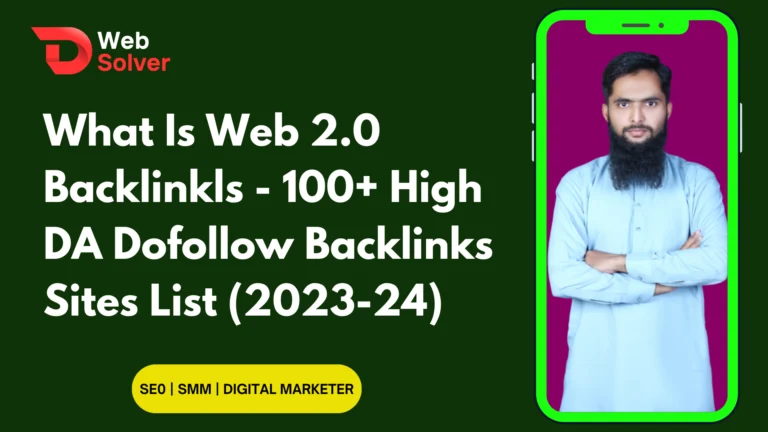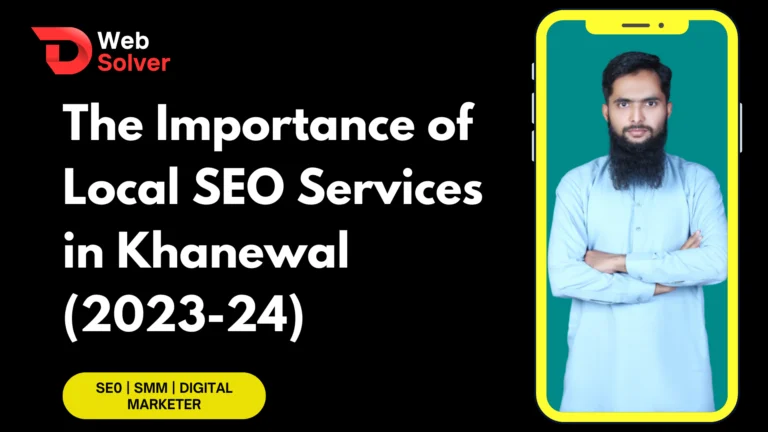18 SEO Strategies to Create a Successful Holiday in 2023-24
The holiday season is a golden opportunity for businesses to boost their online presence and sales. To make the most of this festive period, you need a well-crafted SEO strategy that not only attracts potential customers but also converts them into loyal clients. In this article, we’ll guide you 18 SEO strategies to create a successful holiday in 2023 that will help your business shine like a star on a Christmas tree.

Introduction
The holiday season is not just about spreading joy and goodwill; it’s also a time when businesses can significantly increase their revenue through effective online marketing strategies. One of the most powerful tools at your disposal is Search Engine Optimization (SEO).
18 SEO Strategies to Create a Successful Holiday
1. Understanding the Importance of Holiday SEO
Before diving into the specifics, let’s explore why holiday SEO is crucial. During this time, people are actively searching for gift ideas, deals, and holiday-related information online. If your website doesn’t appear in their search results, you’re missing out on a vast pool of potential customers.
2. Setting Clear Goals
Start by setting clear, measurable goals for your holiday SEO campaign. Are you looking to boost sales, increase website traffic, or raise brand awareness? Defining your objectives will guide your strategy.
3. Keyword Research: Santa’s List of Keywords
Keyword research is the foundation of any successful SEO strategy. Identify holiday-themed keywords that align with your goals and incorporate them naturally into your content.

4. Optimizing Your Website for the Holidays
Ensure your website is user-friendly, mobile-responsive, and loads quickly. Google rewards websites that offer an excellent user experience.
5. Crafting Festive Content
Create engaging and shareable holiday content. Blog posts, gift guides, and festive videos can capture the spirit of the season and attract more visitors to your site.
6. Leveraging Social Media
Use social media platforms to promote your holiday content, engage with your audience, and run targeted ads to reach potential customers.
7. Mobile Optimization: Your On-the-Go Sleigh
Optimize your website for mobile devices. Many holiday shoppers use smartphones and tablets for their online shopping needs.
8. Monitoring and Analytics
Regularly monitor your SEO efforts using tools like Google Analytics. Adjust your strategy based on the data to ensure you’re on the right track.
9. Embracing Email Marketing
Send out holiday-themed email campaigns to your subscribers. Personalize your messages and offer exclusive deals to encourage conversions.
10. Tis the Season for Link Building
Build quality backlinks to your website. Collaborate with influencers and other businesses to increase your online visibility.
11. Preparing for the Post-Holiday Season
Don’t forget to plan for the post-holiday season. What will you do with the valuable data and new customers you’ve acquired?
12. User Experience and Site Speed
A fast-loading, easy-to-navigate website is essential for keeping visitors engaged and reducing bounce rates.
13. Budgeting and ROI
Allocate a budget for your holiday SEO strategy and track your return on investment. Adjust your spending based on what’s working.
14. Leveraging AI in Content Creation
1. Content Generation
AI-powered tools like GPT-3 can create human-like content, reducing the time and effort required for writing. These tools can generate blog posts, product descriptions, and even social media updates, saving businesses valuable resources.
2. Content Optimization
AI can analyze existing content and suggest improvements for SEO. It identifies relevant keywords, checks readability, and ensures that your content aligns with the latest Google algorithms.
3. Personalization
AI helps in tailoring content to specific audiences. It can analyze user data and create personalized recommendations, improving user engagement and conversions.
15. Semantic Keywords Strategy: Beyond the Basics

1. Understanding Semantic Keywords
Semantic keywords go beyond traditional keywords and focus on context and user intent. They allow your content to rank for related terms, increasing your website’s visibility.
2. Creating Semantic Content
Craft content that comprehensively covers a topic, addressing various aspects and related terms. Google’s algorithms are increasingly favoring in-depth, semantically rich content.
16. HARO Backlinks: A Winning Strategy
1. What is HARO?
Help a Reporter Out (HARO) is a platform where journalists seek sources for their stories. By responding to relevant queries in your niche, you can earn high-quality backlinks from reputable sources.
2. Building Authority
HARO backlinks can establish you as an industry expert, driving organic traffic to your site and improving your search engine rankings.
17. Outreaching for Free Guest Posts
1. Competitor Analysis
Identify competitor websites in your niche that accept guest posts. Analyze their content and outreach strategies.
2. Crafting Outreach Emails
Create personalized outreach emails to the website owners, offering high-quality guest posts that provide value to their audience.
3. Mutual Benefits
Highlight the benefits of your guest post for the host website, such as increased traffic and enhanced content quality.
18. Navigating Google’s Updates
1. Staying Informed
Google frequently updates its search algorithms, affecting website rankings. Stay informed about these updates through reputable sources in the SEO community.
2. Adaptability
Adapt your SEO strategies to align with Google’s latest updates. Prioritize user experience, mobile optimization, and high-quality content to remain resilient to algorithm changes.
The digital landscape is evolving rapidly, and to stay competitive, businesses must embrace AI, leverage semantic keywords, utilize HARO backlinks, engage in strategic guest posting, and closely monitor Google’s updates. By incorporating these strategies, you can not only survive but thrive in the ever-changing world of online content and SEO.
SEO Roadmap for Beginners

Phase 1: Getting Started
- Learn the Basics
- Understand what SEO is and why it’s crucial for online success.
- Keyword Research
- Familiarize yourself with keyword research tools like Google Keyword Planner and SEMrush.
- On-Page SEO
- Learn how to optimize meta titles, descriptions, headings, and content for keywords.
Phase 2: Website Optimization
- Website Audit
- Use tools like Screaming Frog to identify and fix technical SEO issues on your site.
- Mobile Optimization
- Ensure your website is mobile-responsive for a seamless user experience.
- Site Speed
- Improve loading times by optimizing images, leveraging browser caching, and reducing code.

Phase 3: Content Creation
- High-Quality Content
- Create engaging, informative, and shareable content that adds value to your audience.
- Semantic Keywords
- Incorporate semantically related keywords to improve content relevance.
- Content Calendar
- Develop a content schedule to maintain a consistent posting frequency.
Phase 4: Link Building
- Backlinks
- Build high-quality backlinks from reputable websites in your niche.
- Guest Posting
- Reach out to websites for guest posting opportunities, showcasing your expertise.
Phase 5: Analytics and Monitoring
- Google Analytics
- Set up Google Analytics to track website performance and user behavior.
- Google Search Console
- Monitor your website’s presence in Google’s search results and resolve issues.
- Keyword Tracking
- Use SEO tools to track your keyword rankings and adapt your strategy accordingly.
Phase 6: Ongoing Learning
- Stay Updated
- Continuously educate yourself on SEO trends and algorithm updates.
- Community Engagement
- Join SEO forums and communities to learn from others and seek advice.
Phase 7: Local SEO (Optional)
- Google My Business
- If applicable, optimize your Google My Business listing for local search.
- Local Citations
- Ensure consistent business information across online directories.
Phase 8: Advanced SEO (Future)
- Structured Data
- Explore structured data markup to enhance rich snippets in search results.
- Technical SEO
- Dive deeper into technical SEO aspects, such as schema markup and site architecture.
- Voice Search Optimization
- Prepare for the growing impact of voice search by optimizing content accordingly.
Remember that SEO is an ongoing process, and results may take time. Stay patient, keep learning, and adapt your strategy as you gain experience in the field.
| Phase | Tasks |
|---|---|
| Phase 1: Getting Started | 1. Learn the Basics: Understand the importance of SEO. 2. Keyword Research: Familiarize yourself with keyword tools. 3. On-Page SEO: Optimize meta titles, descriptions, and content. |
| Phase 2: Website Optimization | 4. Website Audit: Use tools to identify and fix technical issues. 5. Mobile Optimization: Ensure your site is mobile-responsive. 6. Site Speed: Improve loading times. |
| Phase 3: Content Creation | 7. High-Quality Content: Create engaging, valuable content. 8. Semantic Keywords: Incorporate related keywords. 9. Content Calendar: Establish a consistent posting schedule. |
| Phase 4: Link Building | 10. Backlinks: Build high-quality backlinks. 11. Guest Posting: Reach out for guest post opportunities. |
| Phase 5: Analytics and Monitoring | 12. Google Analytics: Set up website performance tracking. 13. Google Search Console: Monitor site presence. 14. Keyword Tracking: Track keyword rankings. |
| Phase 6: Ongoing Learning | 15. Stay Updated: Continuously learn about SEO trends. 16. Community Engagement: Join SEO forums and communities. |
| Phase 7: Local SEO (Optional) | 17. Google My Business: Optimize local listing if applicable. 18. Local Citations: Ensure consistent business information. |
| Phase 8: Advanced SEO (Future) | 19. Structured Data: Explore rich snippets with schema markup. 20. Technical SEO: Dive deeper into technical aspects. 21. Voice Search Optimization: Prepare for voice search impact. |
Conclusion
In conclusion, a successful holiday SEO strategy can make your business shine during the festive season. By setting clear goals, conducting thorough keyword research, optimizing your website, and leveraging various marketing channels, you can maximize your online presence and boost sales.







